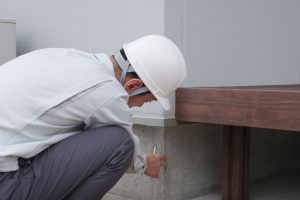How to Get Your House Ready for a Home Inspection

As a seller, preparing for a home inspection is one of the most important steps to take to close a deal. Although a buyer has signed a purchase agreement before the home inspection, they can still back out if the result of the check doesn’t go well. For example, the home inspector finds a major flaw or problem in the property.
A buyer can also renegotiate the sale price if the inspector finds something in need of a repair and the seller refuses to do the repair or provide a replacement. For that reason, you want to make sure that the home inspection goes without any hitch. Here some tips to help get your house ready for a home inspection.
Do a Thorough Cleaning
Everything should be clean and organized when the home inspector and buyer arrive at the property. It’s a simple yet effective way to create a good impression and start the check.
Make sure everything is clean from the inside to the outside, and pay attention to details. A clean home speaks volumes about how the owner takes care of their property. If a seller can’t even put their home in order before an inspection, it can cause an issue that may compromise the final deal with the buyer.
Give Access to the Perimeter
An inspector will need access to many places in the property to check everything, from the HVAC system to the roof. You’ll need to make sure that they can get to these areas without any problems. If they can’t access and inspect an area, they’ll note it down for a buyer, and this can be taken as a sign of a problem.
Before the inspection, get rid of any clutter or debris blocking access to areas that inspectors need to check, including the basement, attics, utility rooms, and cabinets. Make sure the doors are unlocked, or give the inspector the access keys to these areas when you hand over the property for inspection.
Take Care of Repairs and Replacements
Problems in the property can result in either the buyer backing out or a slash off the sale price. If you don’t want either to happen, take care of things that need repair or replacement in your property.
Everything from the systems to the fixtures should be functioning properly when the inspector tests them. If a seller refuses to deal with any issue in the property, the home inspector will note this down, and the buyer will take that as a red flag.
Other than making sure everything works well, you must also fix problems like leaks and water damage. Water-related issues tend to become bigger concerns over time, so a home inspector is likely to watch out for them specifically.
Make Sure Your Bathroom Fixtures Are Up-to-Date
Bathrooms are dealbreakers when it comes to property sales. There’s no other way to say it; buyers are simply meticulous about bathrooms. One reason for this is that lavatory fixtures take a lot of work and money to install. The last thing a new homeowner wants is to spend more money on repairs or replacements.
If your toilet was manufactured before 1994, you may want to have it replaced. It’s possible that your toilet is not up to federal standards and may break down anytime soon. Replacing a toilet can be a huge hassle. Consider getting a toilet with an upflush system to avoid the usual hassle of connecting to the drainage system.
You may also want to update your faucets and showerheads to water-efficient fixtures to raise the value of your property.
Do a Last-Minute Check before the Inspection
Responsible sellers usually prepare their property for inspection weeks or even months ahead of schedule. Although you’ve prepared for everything, problems can still crop up unexpectedly. Hence, it’s vital to do last-minute checks near the date of the inspection.
Make sure all the utilities are on when the inspector comes by, and check the accessibility of the areas they will inspect. You and your family should be ready to vacate the area hours before the inspector arrives.
Inspectors and buyers don’t expect a property to be completely perfect, but they do want to be warned about any possible issues in the property. As long as there’s nothing serious to account for, the inspector should give the buyer a go signal to close the final deal with the seller.






